#Fanny Price
Text
I love you "boring" female characters. I love you ingenues. I love you female characters who aren't "modern" enough. I love you female characters who aren't "badass" enough. iI love you female characters who aren't "empowering" enough. I love you quiet female characters. I love you unappreciated female characters. I love you polite female characters. I love you female characters who "can't appeal to modern audiences." I love you frightened female characters. I love you female characters labeled as not complex just for being nice. I love you female characters who get criticism just for not being their tomboy or femme fatale counterpart. I love you silk hiding steel trope.
#literature#theatre#movies#cosette fauchelevent#anne elliot#fanny price#elinor dashwood#alicent hightower#sansa stark#meg march#beth march#if you guys can think of any more let me know#much ado about nothing hero#feminism#but if I see this get labeled as trad fem it's blocked on sight#jane seymour#jane bennet#juliet capulet#Snow White#Cinderella#aurora#princess aurora#lucie manette#elain archeron#emma carew#phoebe dysquith#christine daae#stella ransome#cordelia#desdemona
11K notes
·
View notes
Text
A Ranking of Jane Austen Heroines, in Ascending Order of Culpability
Fanny (Mansfield Park): Has done nothing wrong ever in her life (but would never say this as she is far too humble).
Elinor (S&S): Must have scoliosis from carrying the whole weight of the Dashwood family at the ripe old age of 19. Should probably have asked for help by now, but who's she going to ask? Her mother? Unlikely.
Anne (Persuasion): Pros: is the only functioning member of her family. Cons: took some really bad advice when she was 17.
Elizabeth (P&P): So dead-set on hating Mr. Darcy that she falls hook-line-and-sinker for the lies Wickham tells her with no questions asked. Otherwise has good sense.
Marianne (S&S): Throws herself headlong into the Romantic Experience™️ and gets her heart broken by a playboy when Colonel Brandon is literally RIGHT THERE.
Catherine (Northanger Abbey): Good-hearted, but easily led astray. So obsessed with Gothic novels that she kind of accuses Mr. Tilney's father of murdering his wife and burying her in the basement.
Emma (Emma): Tells Harriet to refuse the nice guy she likes, too prideful to see that Mr. Elton is pursuing her instead of Harriet, gossips about Jane Fairfax, feels like the rules don't apply to her, won't listen to Mr. Knightly. Is a menace.
#emma is actually my favorite lol#and then eleanor#jane austen#textpostsbymellpen#pride and prejudice#sense and sensibility#mansfield park#northanger abbey#persuasion#emma jane austen#elizabeth bennet#elinor dashwood#marianne dashwood#catherine morland#fanny price#anne elliot#convoswithmoystarushka
1K notes
·
View notes
Text
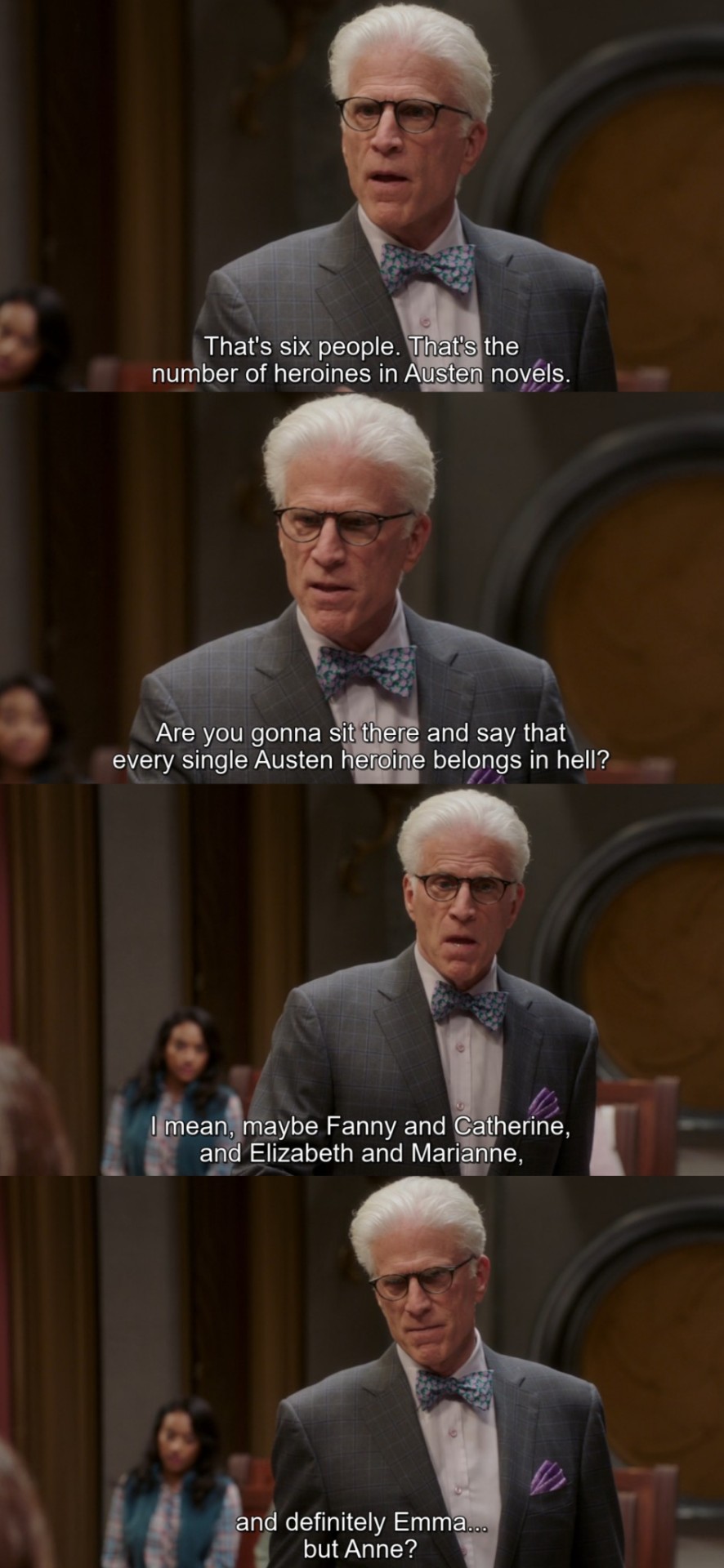
#jane austen#the good place#pride and prejudice#emma#persuasion#sense and sensibility#northanger abbey#mansfield park#anne elliot#elizabeth bennet#marianne dashwood#fanny price#catherine morland#emma woodhouse#tgp#my posts#i feel like i need to explain this 😂#this just came to me when i realized the numbers matched up#and no shade to any of the girls!! i love them all!!#but anne is definitely the best person among them in the tgp sense#(don't) notice i switched elinor for marianne bc otherwise i couldn't choose between elinor and anne 😗#also check the notes for the fanny explanation#1k#!!#wow this got so many notes all of a sudden
1K notes
·
View notes
Text
fanny price DOES get a great happy ending, fight me
like okay
no, fanny does not successfully tame the Rake and reform him into a sexy sexy faithful husband. yes, we could argue all day about whether edmund bertram is underrated or a soggy biscuit of a man, but that fact is ultimately IRRELEVANT. HE is irrelevant except as like. a piece of the broader picture
the ending of mansfield park only sucks if you're viewing it from the extremely narrow and shallow lens of like: the modern capital R romance, where the woman's happily-ever-after is defined by her attaining the Ideal/Most Desirable Man™.
but that's not what the novel is about!
fanny price's happy ending is BEING PROVEN RIGHT AND HER WORTH ACKNOWLEDGED after putting up with YEARS of fucking bullshit despite CONSTANTLY being a better judge of character, of morals, of good sense, than literally ANYONE ELSE AROUND HER.
fanny price's happy ending is her spending months going 'HMM I"M GETTING BAD VIBES' and everyone saying 'stfu fanny you don't know shit'
and at the end of the novel she gets to watch everyone else either blows up their entire life as a result of ignoring The Vibes, or fall over her trying to apologize because HOLY SHIT FANNY WHY DID WE NOT LISTEN TO YOU ABOUT THOSE VIBES
and people being like WE TOOK YOU SO FUCKING FOR GRANTED WE FUCKED UP'
and she is like: yes, I know this, and finally everyone else does too, and that is literally all i have ever wanted in life
fanny price's happy ending is people apologizing and acknowledging her worth
fanny price's happy ending is basically the equivalent of her sitting there smiling with genteel energy while her inner self is performing this dance

and honestly: i love that for her
#mansfield park#jane austen#fanny price#are you ever like: i need to go to bed early#but i need to yell at the internet about mansfield park more
282 notes
·
View notes
Note
Ranking Jane Austen heroines/women on how good of a mother they’d be?
As with the men, I think they would all be good mothers, though in different ways.
Elizabeth Bennet: Soccer mom, she wasn't given the opportunity to have a structured education herself, it will be different for her kids. She's hiring the best governess she can find (after Darcy does a full background check), she's encouraging her kids to do extracurriculars, they will speak six languages that she doesn't understand or else! Has a minor panic attack if she says anything that sounds even remotely like something either of her parents would say.
Jane Bennet: Gentle mom, she cannot imagine punishing her children, she just has a killer disappointed face (she is unaware of this). Encourages her children to always try to understand both sides of the story. Will eventually fall for a lie one of her children tells and be devastated when she figures out the truth.
Anne Elliot: Perfect mother, there is indeed no one so proper, so capable as Anne. She has also watched her sister do everything wrong and she knows exactly how to do it right.
Emma Woodhouse: Scatterbrained mom, makes a resolution to teach her daughter fancy work but then gets distracted and the sampler is left half finished. Promised to read with her son but they only make it halfway through the novel. Good thing she hired an excellent "Miss Taylor" to pick up the slack! And despite her occasional screw-ups, her kids love her to pieces. They just better be on guard when they hit 18 and she starts trying to marry them off.
Marianne Dashwood: Crunchy mom, or whatever the Regency period equivalent would be. She wants her kids to feel the dead leaves between their toes, she encourages them to write poetry and play moving ballads. Otherwise, a lot like her own mother (they have very similar personalities)
Elinor Dashwood: I-Say-I-Love-You-With-Food Mom, she may not be exactly emotionally available, but she orders her daughter's favourite meal when she's sad and there are tiny hearts in the stiches of her son's clothes. She makes sure her kids are provided for, educated, and healthy. When she asks if they are hungry, they know she's saying, "I love you."
Fanny Price: Nurturing mom, she will be everything for those children that Edmund and William were to her, but nothing like Sir Thomas, Lady Bertram, Mrs. Norris or her own parents. She has a good deal of experience from nursing her own siblings so it's a pretty smooth beginning.
Catherine Morland: Overconfident mom, Catherine has been there and done that, she has six younger brothers and sisters after all, she's READY! This will be easy! All you have to do is make sure the baby is fed, washed, changed, and napped... oh... it's a lot harder to do this when you have only slept for 2.5 hours last night... (I know she would have servants, but still, being a new mother is tough!)
Bonus: Jane Fairfax tries to keep Frank from spoiling the kids, but it is literally impossible. He keeps buying them huge presents and then she would be the bad guy for saying no. Also, she knows that Frank lost their child in Kensington Gardens (twice), that's why she always insists he take a footman now.
Bonus bonus: Harriet Smith has a special box where she keeps all the 'treasures' her kids collect. It is her most precious possession.
#question response#jane austen#austen moms#emma#emma woodhouse#pride and prejudice#elizabeth bennet#jane bennet#sense and sensibility#marianne dashwood#elinor dashwood#persuasion#anne elliot#northanger abbey#catherine morland#mansfield park#fanny price#jane fairfax#harriet smith
782 notes
·
View notes
Text
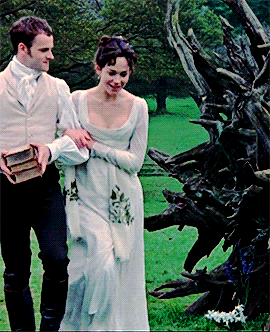
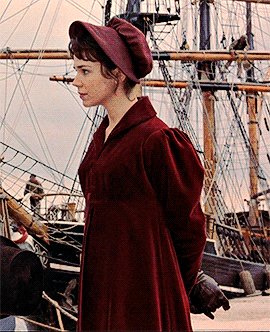
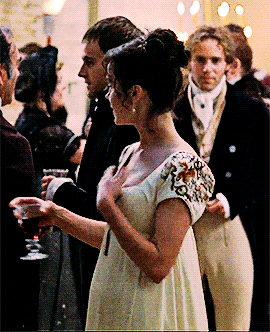
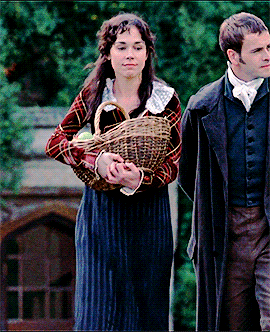

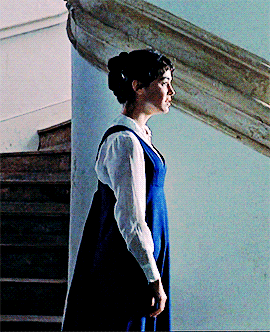

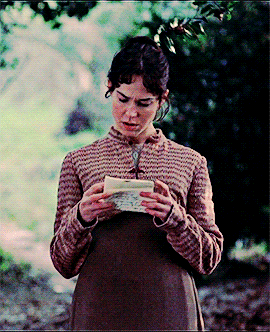
Fanny Price's wardrobe in MANSFIELD PARK (1999)
#costumegifs#perioddramaedit#perioddramasource#mansfield park#filmedit#austenedit#fanny price#mine#q#period dramas#cinema
377 notes
·
View notes
Text
just saw an Austen Fan™️ say that Mansfield Park has literary merit “”in spite of”” Fanny being a “somewhat unlikable protagonist” like what???? she’s literally just traumatized and introverted you don’t have to go after her like that
367 notes
·
View notes
Text
Muppet Mansfield Park. Fanny Price is the only human, everyone else is an absolute fucking muppet (derogatory).
#jane austen#mansfield park#fanny price#Piggy and Kermit as Sir Thomas and Lady Bertram#think about it
211 notes
·
View notes
Text
It is no secret that I hate the Fanny/Henry pairing, bc like...
How can you read that book, and how Henry acts, and the distress it causes Fanny while we're in her head the whole way through...
And want her to be wrong? And want her to be the one to have to admit she was wrong?
No! Terrible, awful ending. Henry Crawford is not a good person. He's not, like, evil. But he's selfish and self-centred and thinks he deserves Fanny because he's rich and charming and made the bare minimum effort to seem like a better person. I fully buy into the idea that he likes her because he likes a challenge, and that if finally faced with what she like every day (shy and retiring and quiet and uncomfortable around loads of ppl) he'd start to resent her sharpish.
This is a book about selfishness and selfish people, and even in this cast, he's near the top of the most selfish, the most careless with the feelings of others. At the centre is Fanny, who is maligned and mistreated, but despite all is selfless and good, though she struggles with jealousy and negative thoughts and feelings.
It's a book about how she - poor and dependent and not especially well educated or taken care of by her relatives - knows her own mind and deserves to be treated as a rational, intelligent person.
It is literally crucial to her arc and the arc of the story that she's right about Crawford!
#fanny price#mansfield park#henry crawford#ive started to just think of it as kind of misogynistic#to be like ugh why won't she just marry Henry#like she's being irrational#you are literally sir thomas bertram (derogatory) sorry#anti henry crawford#i don't actually think it is but I'm going to tag just in case#anti fanny/henry
166 notes
·
View notes
Text
I'm in the Fanny Price Defence Squad but I am also very much in the Mary Crawford Defence Squad. Sorry I'm very powerful.
#mansfield park#austen posting#engposting#jane austen#fanny price#mary crawford#THEY BOTH ARE GOOD I LIKE THEM BOTH#MARY CRAWFORD DID NOTHING WRONG
102 notes
·
View notes
Text
Yknow I think it’s okay that Fanny & Edmund’s relationship only comes to fruition in the last chapter because Mansfield Park isn’t about their relationship. It’s about misconduct and morals and reputations and family. It’s not a love story like Pride and Prejudice, and readers who go into it thinking it is (like I did) will probably come out disappointed with a good story.
#mansfield park#fanny price#edmund bertram#jane austen#pride and prejudice#my post#get ready for a lot of posting about Jane Austen books
95 notes
·
View notes
Text
Fanny Price: I can't fix him
102 notes
·
View notes
Text
Fanny Price should have been allowed to violently murder everyone who ever wronged her actually.
#fanny price#mansfield park#jane austen#novels#words from alice#text#y'all can reblog this if you want
285 notes
·
View notes
Text
Mansfield Park - Henry Crawford and Fanny Price
I want to lay out how I see these characters and their relationship, because to me they seem to be set up as a deliberate contrast to Pride and Prejudice. At the tine of Henry’s first proposal, they are in a similar place to Elizabeth and Darcy at the time of Darcy’s first proposal, albeit with extremely different personalities than those characters: Fanny refuses him despite his wealth and her economic precarity because she cannot like or even respect him. However, Fanny, who is far shyer than Elizabeth, cannot lay out in direct and specific terms the foundation of her disapprobation of him.
From there, Henry sets out to win her regard in ways that very closely recall some of the events between Elizabeth and Darcy.
1) He does a great favour for a relative of hers. In his case, it is getting his uncle the admiral to have Fanny’s brother William promoted to lieutenant; in Darcy’s, it is saving the Bennets from disgrace by getting Wickham to marry Lydia. Darcy’s favour is far greater, and much more personally unpleasant for him, and he keeps it intentionally secret; he does it out of love of Elizabeth, but not to make her feel obligated. Henry’s takes only a few days of his time, its goal is get to Fanny to like him better, and he leverages it both at first and later to make her feel obliged to him.
2) He changes his manners to suit her. In Darcy’s case this means being polite rather than rude and haughty; in the case of Henry, who has always been charming and gregarious, it involves softening his manners to suit Fanny’s shy and quiet personality and engaging in more serious talk. In Darcy’s case this is a fundamental change in response to Elizabeth’s reproof; in Henry’s, it’s a simple adaptation to one person’s taste rather than another. He’s intelligent and able to engage in serious conversation when he wants to, but that’s not indicative of any fundamental change in his thinking.
3) He is polite to her family (the Prices, in Portsmouth) even when they are embarrassing.
4) He speaks with Fanny about reforms he is making on his estates to make sure his tenants are being treated fairly. These feels like a parallel to Elizabeth’s improved opinion of Darcy upon visiting Pemberley and hearing how well his servants speak of him. The difference is that Darcy has always been like that, whereas we are told early in Mansfield Park that Henry has been little on his estates during his adulthood: “To any thing like a permanence of abode, Henry Crawford had…a great dislike”. Darcy is acting in line with deep-seated principles; Henry is doing it as part of his courtship of Fanny, so he can bring it up to her and look good. He also tries to get her to counsel him to continue in this current vein, to engage her in a desire to fix/improve him, which Fanny shuts down laudably: “I advise! - you know very well what is right,” and when he reples that he always knows what is right when she tells him: “We all have a better guide in ourselves, if we would attend to it, than any other person could be.” The weakness of Henry’s motivation is seen in the ending, where he puts off a visit to his estates to set matters right there in order to flirt with the now-married Maria Rushworth.
In short, Darcy is already good in many concrete ways, and sincerely improves in the ways where he is faulty, not in order to get Elizabeth to love him but because he thinks about her criticisms, agrees with them, and wants to be better for its own sake; and he helps her family solely out of love for her and deliberately hides it. Henry changes his manner and talk as part of his courtship, but his deeper values and attitudes do not change, and everything is directed at getting Fanny to fall for him.
The second area of contrast is in what the heroines object to. Elizabeth’s aspersions on Darcy’s character, regarding his interactions with Wickham, are found to be mistaken; her legitimate objections are to his attitude and arrogance, and he amends this. Henry’s manners are impeccable and his company charming; Fanny’s objections are to his character. She sees him deliberately flirt with both her cousins at once to a degree that implies an intent to propose, and play them off against one another; she sees him make some very deliberate and mutually-understood innuendo towards Maria, signifying that she should break off her engagement and be with him instead, all with zero intention of actually proposing if she did do so; she sees him use the theatricals to continue this pursuit of Maria. And this is very usual behaviour for Henry; his sister says he has broken many hearts, and when he starts courting Fanny his goal is to make her fall in love with him and then leave her “feeling she will never be happy again”.
This is what makes me judge Henry much more harshly than his sister Mary. Mary can be selfish, but she is not malicious or cruel, and she can be kind when it doesn’t inconvenience her (and one of her better traits is that even when she is unhappy or disappointed she never takes it out on other people). In contrast, Henry’s principal diversion and entertainment for years has been deliberately making young women miserable, leading them on, getting them to reject other suitors in hopes of him, and then departing without a care, to please his own vanity. He is, in truth, doing not once but habitually, what Willoughby did to Marianne: always implying enough to seem on the edge of an engagement but never following through, and then pretending it was all nothing. It’s a casual cruelty he finds amusing as a proof of his skills. In short, he’s a deceptive playboy. Even after Maria is married, he can’t resist flirting with her, which is what leads to her disgrace and social destruction.
Even though Austen lays out an alternative scenario where Henry might have married Fanny if not for that final flirtation with Maria Rushworth, all of the above does not lead me to believe she find that scenario desirable. She’s painstakingly laid out all the contrasts with her previous novel that make this scenario a very different one from Pride and Prejudice.
In addition to Henry’s serial seductions, one of the biggest red flags is his attempt to make Fanny responsible for his character, with an attitude of ‘you’re such an angel, you can make me do whatever you want’. This gives me Tenant of Wildfell Hall vibes, where Helen’s aunt tries to warn her off thinking that an older man of the world will let himself be guided and led by a younger woman who is in his power. Fanny rejects this idea: Henry knows what is right, can make his own choice to do it, and she will not let herself be appropriated as his conscience. Henry isn’t debauched like Huntington, but if Fanny married him the chances of him feeling bored after some years - when he no longer has the thrill of the pursuit to keep him interested - and pursuing other flirtations and affairs to Fanny’s misery, seems pretty high based on his character; and he’s skilled enough at skirting the line that he could easily brush away any objections from her as “oh, it’s nothing, just being sociable.”
On top of all the faults of character - even if Henry did reform, I have trouble seeing Fanny and Henry being happy together. At the core of his personality is a need for change, for stimulus, for challenge (the latter, rather than sexual desire, is the main thing driving his string of conquests), and for company. Fanny, in contrast, very much prefers quiet and the company of a few people she is close to, and I think this is her genuine personality, not something that needs to be overcome by “bringing her out of her shell”. Henry would be bored to misery living the kind of lifestyle that Fanny is comfortable with, and Fanny would be deeply unhappy living in the social whirl and flurry of activity that Henry prefers. In contrast, Fanny and Edmund are both “me after a quiet day in: time for a quiet night in” people.
So, with all this, why is Henry/Fanny a popular AU? Apart from fannish dislike of Edmund (which I don’t share), I think part of it is that we don’t get an open confrontation between Fanny and Henry, the way we do between Elizabeth and Darcy, where she lays out her objections to him: I saw you flirting with both my cousins at once, I saw you making them both unhappy for your own amusement, I saw you repeatedly tempting Maria to break her engagement with no intention of following through if she did, just because you liked the challenge of winning an engaged woman. And the lack of this naturally raises the question of: how would Henry react if this confrontation happened? Which provides fertile soil for AUs.
175 notes
·
View notes
Note
Fanny Price reminds me of Cinderella(specifically the og Disney version) in that both girls suffered abuse, tried to make the best of their situation and remained kind despite their circumstances, yet have been viewed as weak for not fighting back or leaving their situation.
Totally! It's so strange. Fanny Price cannot do anything to improve her situation or she might be sent back home. She's been told that staying at Mansfield is the best thing for her, so she endures. She's even been instructed to be grateful for what meagre things she is given. What can she do? Where else can she go? It's not like she has any power to improve her life, she's entirely dependant. She does have a meek personality to begin with, but she has no other option but continue to be that way.
What is Cinderella supposed to do? Run away as a woman with no money in the medieval era? Her home is horrible but at least it's relatively safe and usually she's being forced to work but not physically abused. This is why we have shelters and escape programs nowadays, because figuring out how to get away from a situation like this is really difficult. Difficult for an adult, harder for a dependant child (not sure what her age is supposed to be and it varies).
If Fanny Price acted like Elizabeth Bennet, there would probably have been no story because Mrs. Norris would have demanded she be sent home and she'd have died along with her sister Mary.
79 notes
·
View notes
Text



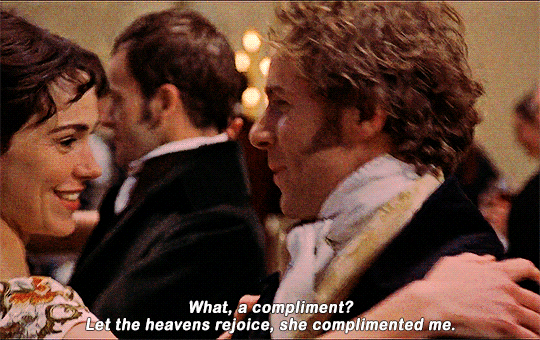
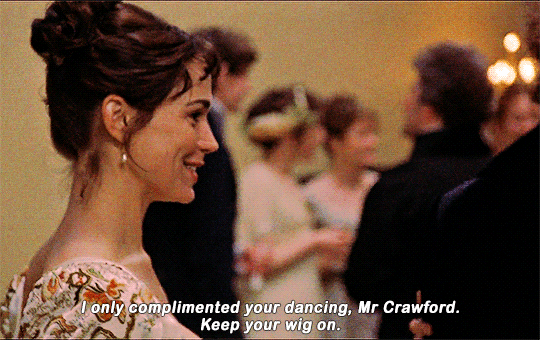
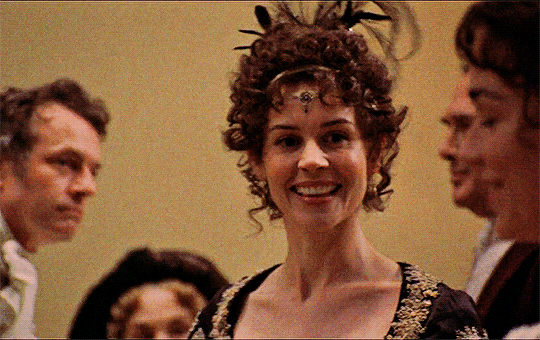
...he had once seen Fanny dance; and it was equally true that he would now have answered for her gliding about with quiet, light elegance, and in admirable time. -Mansfield Park, Chapter 6, Vol. II / Mansfield Park 1999
#filmedit#austenedit#mansfield park#patricia rozema#perioddramaedit#perioddramacentral#perioddramasource#jane austen#henry crawford#fanny price#mary crawford#fanny x henry#henry crawford x fanny price#this scene this convo this dance this soundtrack!!!!#I love how she's barely civil to him and he just loses it lmfao#also the fact that they both have a bad case of heart eyes going on#mine
167 notes
·
View notes